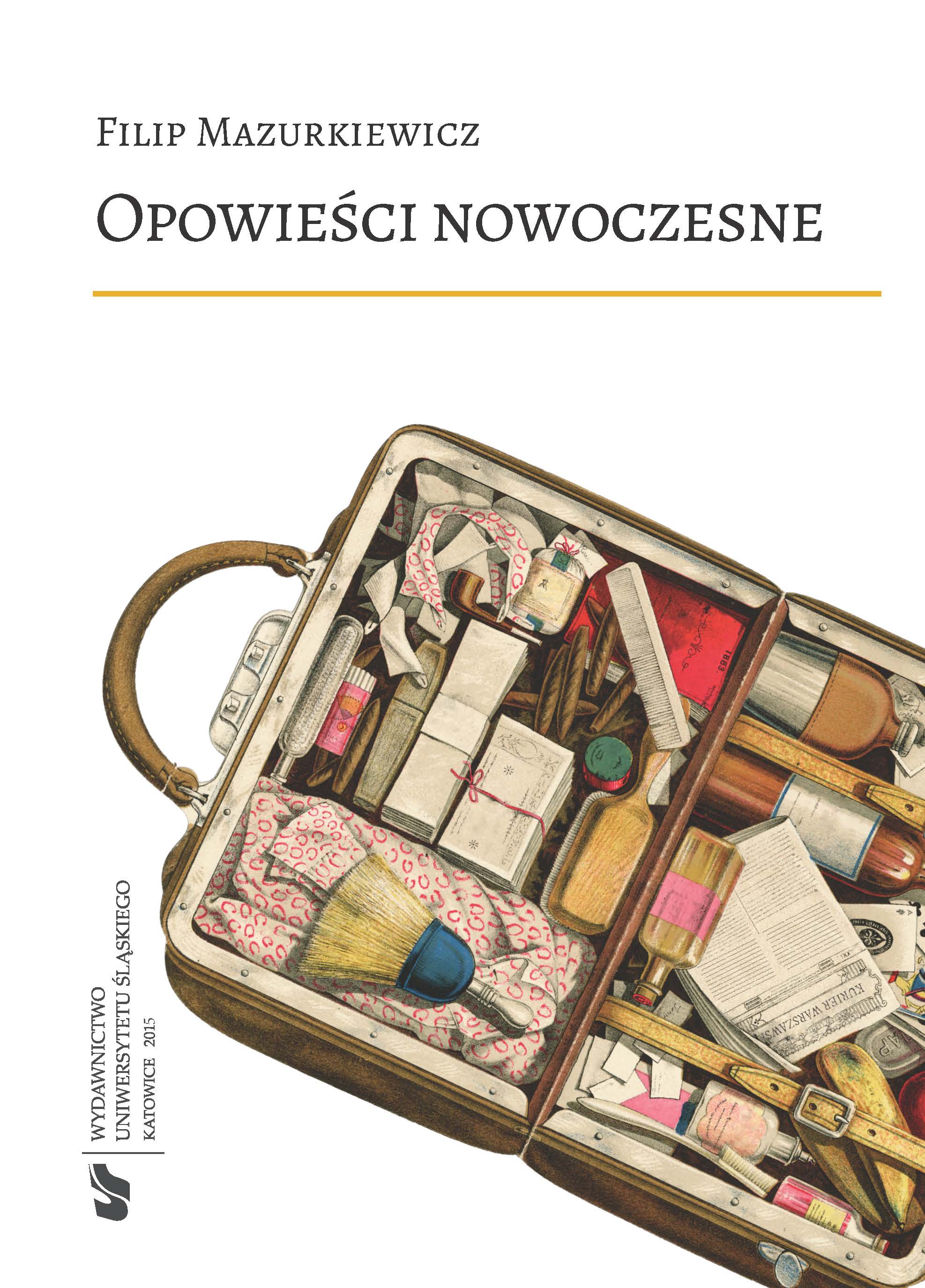Opowieści nowoczesne
Modern Stories
Author(s): Filip Mazurkiewicz
Subject(s): Language and Literature Studies
Published by: Wydawnictwo Uniwersytetu Śląskiego
Keywords: modern stories
Summary/Abstract: The book deals with the nineteenth‑centuryrelations between the notionof modernity — prior to that epoch, and the subsequent literary periods —namely, romanticism, positivism, and modernism. Modernity is defined herewith regard to tradition that used to read it within the frames of steam andelectricity as a certain breakthrough, or rift that marked the beginning of thenineteenth century, rather than a simple continuum of the Enlightenmentprojects. It would thus be a broadly understood dynamic social, cultural, economic,and political construct that would be rich in strong as well as multifacetedeffects. In this way, the subsequent periods would represent various typesof reaction (from negative to affirmative ones with neutral in‑between)to thechallenges posed by a modern and modernizing world.The argument presented in this book is predominantly based on texts thatemerged in the second half of the nineteenth century, particularly positivistliterature as well as from the texts representative of anti‑positivistturn. Thevery notion of positivism has been critically examined in the book. The reader,however, will find here few references to works written earlier — that is, in theromantic period, as well as later ones, composed in the late modern era. Theexemplifications comprising this book most often concern, however, they arenot limited to, short pieces of writing — namely, novellas and stories in themain. The reader will also encounter discussions on the whole novels as wellas their carefully selected fragments. The authors whose works have been analyzedand interpreted are the following: Bolesław Prus, Eliza Orzeszkowa, HenrykSienkiewicz, Adam Mickiewicz, Józef Wybicki, Wacław Berent, WładysławStanisław Reymont, Aleksander Świętochowski, and Maria Konopnicka.In elaborate and often “microphysical” analyses theoretically drawn frompost‑structuralism,deconstruction, and psychoanalysis there are such conceptualconstructs as the issue of the state of emergency, phantasmatic sphere, anagrammatic forms, homo sacer, and many others. The book presents the quest forthe genius loci that gave rise to Polish culture and literature; the unique spacethat is stretched between East and West, between novelty and underdevelopment,between freedom and bondage. The underlying inspiration for the bookwas an overriding, yet hitherto unformulated in any direct way, question ofmodernity, and to put it more precisely, the question of historical provenienceand intricacies of Polish phobias, phantasms, and collective sensitivity. Thusunderstood, the book reads as an essay which, by delving into the bygone matter,makes an attempt at understanding its epoch.
- E-ISBN-13: 978-83-8012-362-5
- Print-ISBN-13: 978-83-8012-361-8
- Page Count: 296
- Publication Year: 2015
- Language: Polish
- eBook-PDF
- Sample-PDF
- Table of Content

